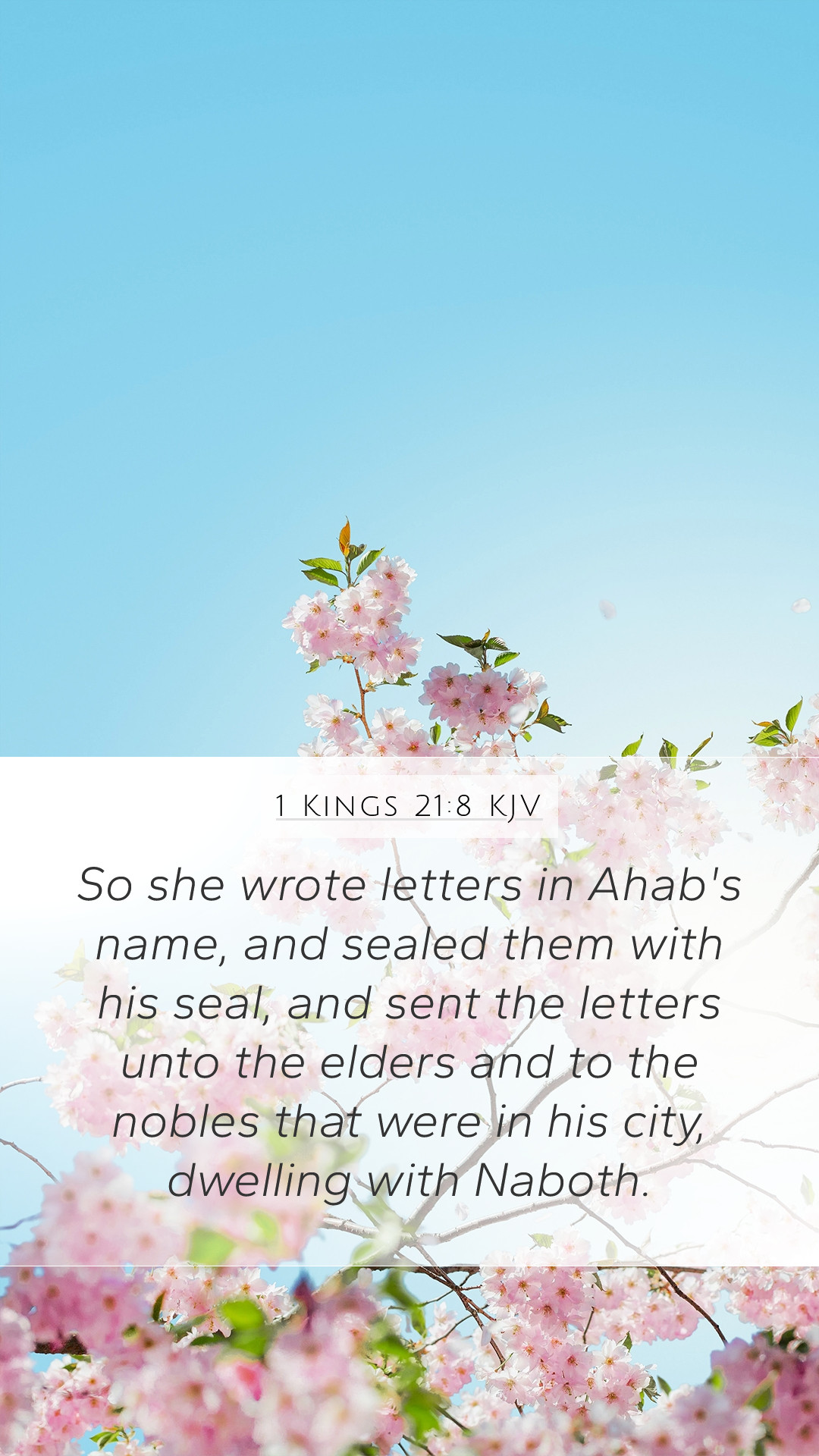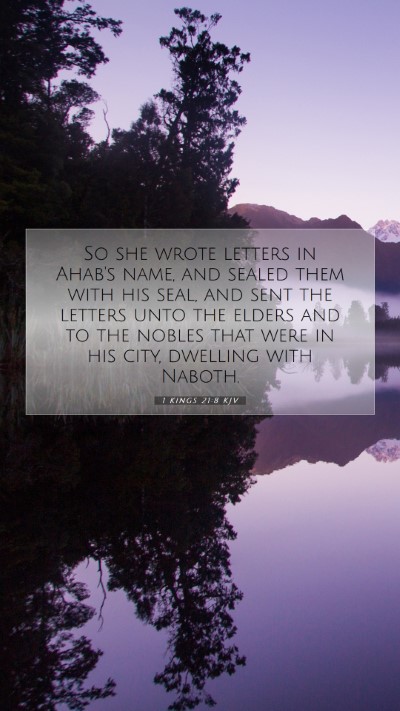Understanding 1 Kings 21:8
Bible Verse: 1 Kings 21:8 - "So she wrote letters in Ahab's name, and sealed them with his seal, and sent the letters unto the elders and to the nobles that were in his city, dwelling with Naboth."
Introduction to Bible Verse Explanations
This passage opens the door to understanding a critical moment in the story of King Ahab and Naboth’s vineyard. It illuminates issues of power, justice, and morality in biblical leadership. By analyzing 1 Kings 21:8, we can delve into the broader narrative of scripture, exploring its implications and applications.
Contextual Background
The context of 1 Kings places us in a tumultuous period of Israel's history during the reign of Ahab, known for his wickedness and idolatry. Naboth, a man of integrity, owned a vineyard adjacent to the king’s palace, which Ahab desired. This verse reflects the lengths to which Ahab's wife, Jezebel, would go to secure what the king wanted, showcasing a blatant abuse of power.
Lessons from the Characters
- Ahab: Represents flawed leadership and covetousness.
- Jezebel: Embodies manipulation and ruthlessness in achieving desires.
- Naboth: Stands as a figure of moral integrity and resistance against tyranny.
Commentary Insights
Matthew Henry's Commentary
Matthew Henry discusses this event as emblematic of the corruption in governance. He notes that Jezebel's actions were not merely individual sins but reflective of a systemic failure in the monarchy. This indicates how personal desires can distort justice and morality in leadership.
Albert Barnes' Commentary
Albert Barnes emphasizes the role of deception in Jezebel's letter-writing. By using Ahab's name and seal, she manipulates the situation to murder Naboth and seize his property. Barnes highlights that this forebodes the inevitable judgment upon Ahab and Jezebel, indicating that such actions will not go unpunished in divine reckoning.
Adam Clarke's Commentary
Adam Clarke provides historical context regarding the significance of Naboth's vineyard. He explains that it was not just a piece of land but a heritage that Naboth was spiritually obligated to preserve. Clarke draws attention to the violation of familial and legal rights, showcasing a deeply rooted principle of justice in ancient Israel.
Applying the Passage to Our Lives
The actions of Ahab and Jezebel in 1 Kings 21:8 carry important lessons for contemporary readers concerning ethics, leadership, and justice. Here are a few applications:
- Accountability: Leaders today are called to exercise integrity and be accountable for their decisions.
- Moral Courage: Like Naboth, individuals are encouraged to stand firm in their values even in the face of oppression.
- Awareness of Manipulation: Recognizing when power is being abused can help maintain justice within communities.
Additional Bible Cross References
- Exodus 20:17: "Thou shalt not covet thy neighbor's house..." - Discusses the moral implications of coveting.
- James 5:6: "Ye have condemned and killed the just; and he doth not resist you." - Reflects on injustice and oppression.
- 1 Kings 21:15: "And it came to pass, when Jezebel heard that Naboth was stoned, and was dead..." - The consequence of her manipulative actions.
Conclusion
1 Kings 21:8 serves as a potent reminder of the moral intricacies involved in human leadership and the tragic consequences of corruption. By engaging in scripture analysis, such as through the insights of esteemed commentators, we enhance our understanding of the significance of this passage in both historical and modern contexts.
Further Study Resources
If you seek deeper engagement with this text, consider joining Bible study groups or using various Bible study tools and guides designed to facilitate in-depth Bible verse analysis. Utilize resources that provide historical context of Bible verses to enrich your Bible study insights.


